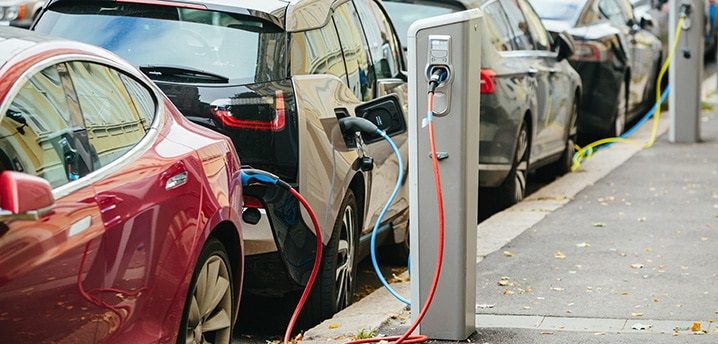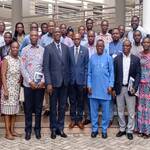Ghana’s aspirations to embrace electric vehicles (EVs) as a means of reducing greenhouse gas emissions and advancing renewable energy adoption face significant challenges.
The United Nations Development Programme (UNDP) and the Energy Commission (EC) have highlighted the absence of adequate infrastructure and a lack of skilled personnel as critical obstacles to the country’s EV rollout.
During a joint event organized by the two organizations, concerns were raised about the state of EV infrastructure, particularly the limited number of charging stations, and the reliance on foreign experts for vehicle maintenance.
The event also marked the presentation of the Market Opportunity Study on Electric Vehicle Charging Stations in Ghana, which provided a detailed analysis of the nation’s EV ecosystem.
Opportunities for renewable energy adoption
According to Mr. Sukhrob Khoshmukhamadov, Deputy Resident Representative at UNDP, electric vehicles represent a transformative opportunity for Ghana to accelerate its transition to renewable energy.
He pointed out that EVs could play a crucial role in reducing urban air pollution and cutting greenhouse gas emissions.
However, he stressed the importance of integrating EV infrastructure into government incentive programs to attract private sector investment.
“Charging stations must be a priority, as they are critical to the success of EV adoption in Ghana,” he said.
Despite expressing concerns about the skills gap in the maintenance of EVs, Mr. Khoshmukhamadov remained optimistic about the potential for collaboration among stakeholders.
He noted that the workshop discussions could pave the way for investment, reducing reliance on fossil fuels while creating green jobs for the future.
Severe shortage of charging stations
Dr. Godwin Kafui Ayetor, a consultant for the Energy Commission, outlined the pressing challenges Ghana faces regarding EV charging infrastructure.
He revealed that only seven charging stations exist in the country, all located in Accra, with no coverage in other regions.
“This geographic imbalance is a major barrier to the widespread adoption of electric vehicles,” Dr. Ayetor explained.
He called on regulators and government agencies to create a comprehensive framework for the placement of charging stations across cities and towns in Ghana.
Power supply and energy challenges
Dr. Ayetor also highlighted the challenges associated with the electricity supply to EV charging stations. Many of these stations depend solely on the national grid, which often lacks backup power, raising reliability concerns.
He urged the government to incentivize private sector investment in renewable energy-powered charging stations to mitigate these issues.
Bridging the skills gap
One of the most significant challenges identified by both organizations is the skills gap in the EV sector.
Dr. Ayetor noted that local expertise in the installation and maintenance of EV charging stations is virtually non-existent.
To address this, he called on the Energy Commission to roll out capacity-building programs aimed at training local electricians and technicians.
“Without skilled personnel, the EV sector in Ghana will remain heavily reliant on foreign expertise,” he cautioned.
Path forward
The UNDP and the Energy Commission emphasized the urgent need to address these challenges to unlock the full potential of Ghana’s EV sector.
They remain optimistic that concerted efforts by stakeholders, coupled with strategic investments, can propel the country towards a greener, more sustainable future.
- Friday, May 9, 2025 Newspaper Headlines - 9 May 2025
- Adangabey brightens rural kids’ future from his wheelchair - 9 May 2025
- Stanbic donates ICT equipment to UHAS for digital learning - 9 May 2025




